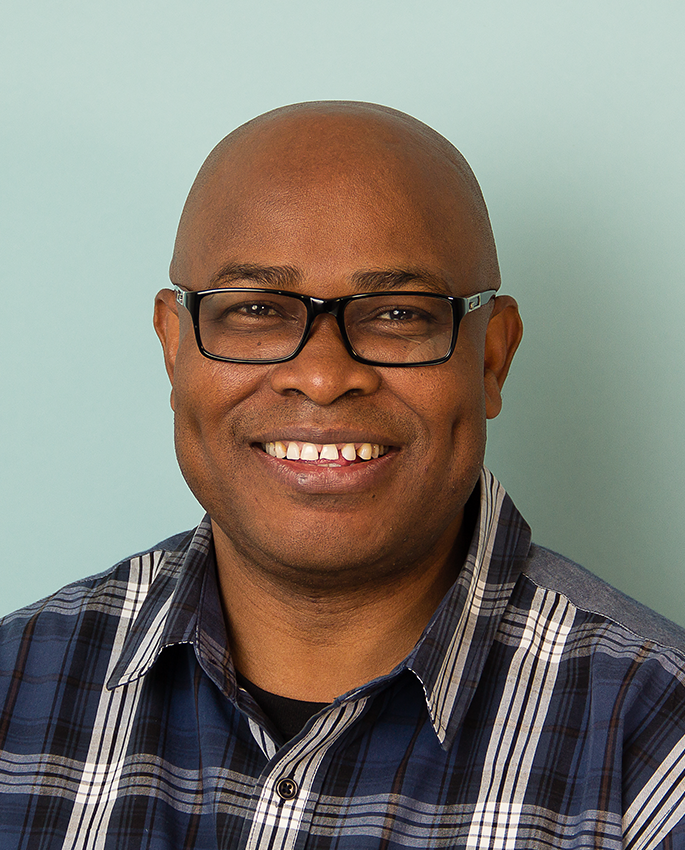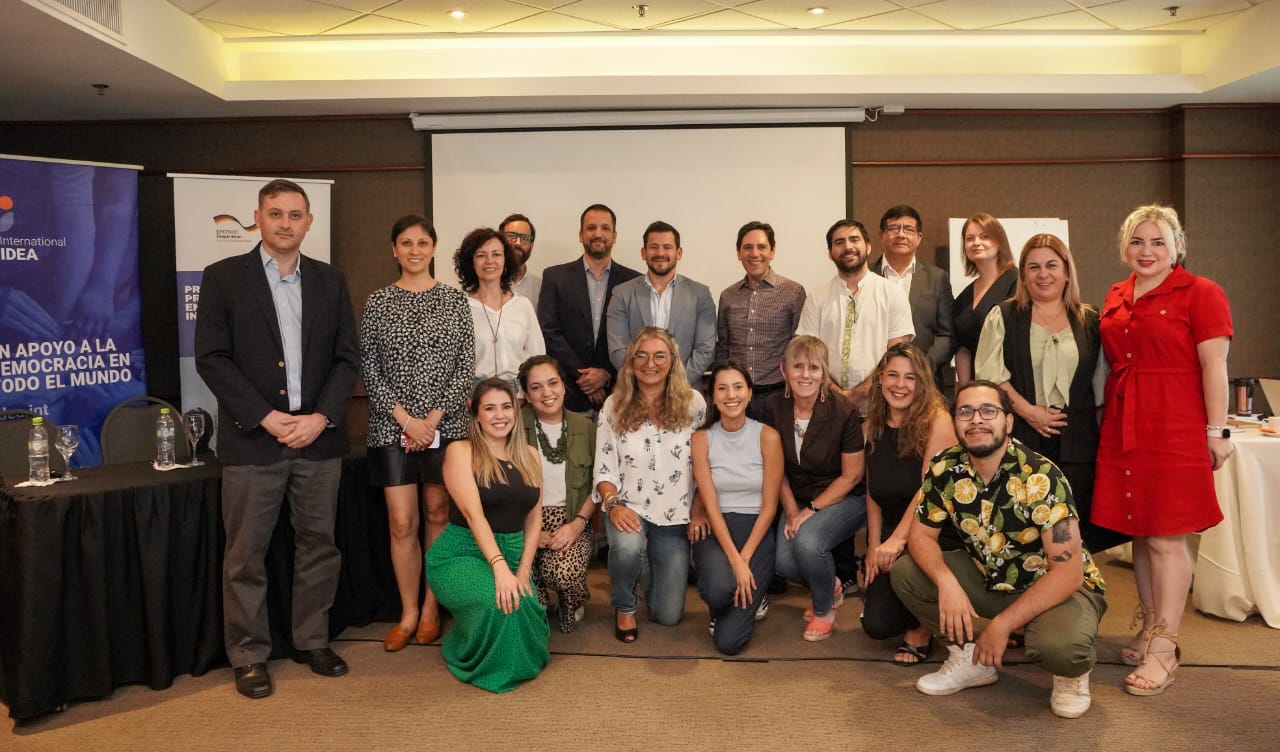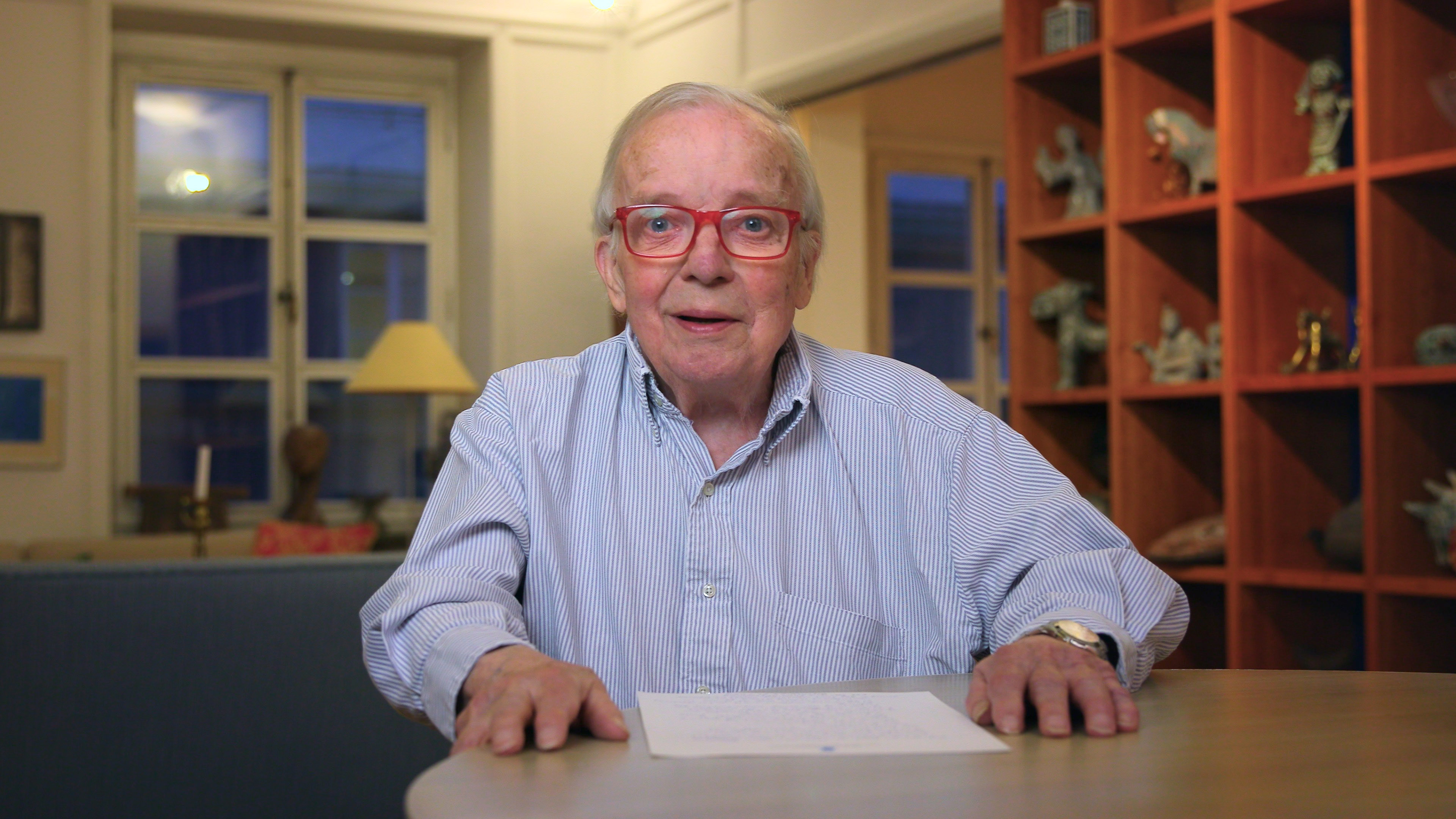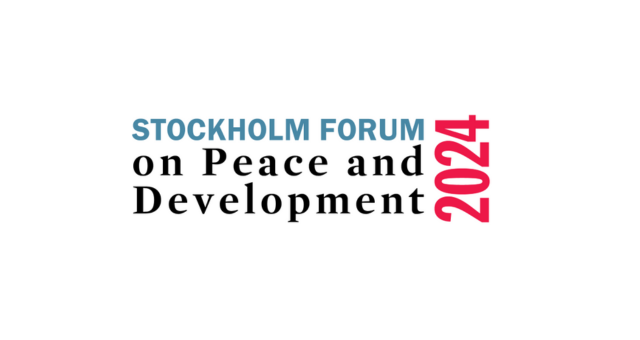International IDEA’s work in Africa changes focus
International IDEA’s Africa Programme has gone through major changes during 2015 to better respond to increased demand in the region. In January, the office moved from South Africa to Addis Ababa, Ethiopia and in April, Adebayo Olukoshi took over as the new Regional Director.
We have hired several new programme officers and staff to better meet the needs of Member States and other countries in the region that have requested International IDEA’s help.
As many countries in Africa today have established democratic constitutions and have held consecutive elections some of the focus of International IDEA’s work in the region has shifted beyond democracy-building to encompass more advanced issues necessary for expanding and deepening democratic participation and development. While constitution-building and elections are still a big part of our work across the region, other areas of expertise, including political finance regulation, gender equality, electoral risk management and the democracy-development interface aare rapidly growing in demand.
In December, the Africa and West Asia and North Africa programmes merged. However, the office in Tunis will remain open and will be the base or our work in the region.
Joining International IDEA from the United Nations African Institute for Economic Development and Planning, Adebayo Olukoshi officially took over the reins of International IDEA’s Addis Ababa office and the revamped Africa programme after serving six years on the organization’s Board of Advisers.
Olukoshi’s vast experience in the area of democracy and governance in Africa makes him the ideal person to lead International IDEA’s work in the region at a time when the organization is greatly expanding its effort to contribute to the enhancement and deepening of the democratic transition and development of African countries.
Adebayo answers a few questions about International IDEA’s work in Africa:
What are some of the main challenges that International IDEA faces in the region?
One of the outcomes of the review of the Africa Programme in 2014 was that we need to interpret Africa in terms of the varieties of the democratic experience that are to be found on the continent. We cannot put South Africa in the same basket as, for example, Guinea Bissau for our programmatic work.
If in the 1990s it seemed to make sense to view Africa as a continent with a uniform set of democratic governance concerns across the board, today, the case is stronger than ever before for us to graduate to a level where we can begin to group African countries in a different way. This allows our programmatic work to take into account the differences in experiences and the variations that have emerged even if there are also similarities.
I’m convinced that the era of the omnibus, one-size-fits-all characterization of the African experience is over and the effectiveness of interventions from organizations such as ours will depend more and more on our capacity to be more nuanced and better targeted. This is one of the main challenges I hope we will be tackling and in doing so, International IDEA will, hopefully, be better-placed to accompany countries and actors in their efforts to promote a brighter future for the populace.
Money in politics is one of International IDEA’s focus areas. How do you work with this issue ?
One immediate area is our workwith countries in developing laws to regulate the influence of money in their political systems. It could be issues of contribution and donation caps or greater accountability by parties in the management of the money they receive.
It is a fairly new territory for most African democracies. Not so much in terms of the fact that money plays a role in politics but, rather, that there is a need to control it so that democratic governance doesn’t become reduced to a game that is played only by the most well-heeled members of society or their minions. As things stand, only a few African countries have developed rules on campaign finance, for example.
Another growing concern is the influence of corporate and non-corporate money in politics. Rich corporations and individuals have been known to use their resources to buy policy or shape political outcomes in ways that are not healthy for the system. There is also a growing problem with dirty money, including drug money, flowing into politics. So there is a lot of work to be done in this area.
The cost of democracy
One other area of money in politics to which I must also draw attention concerns the cost of the governance system.
Most of the countries on the continent depend on primary commodities for their national income. The role of public expenditure for the wellbeing of the economy is uncontested. Even the private sector awaits the national budget in most cases before deciding on how to allocate investments. Given the centrality of public finance to national socio-economic wellbeing, alarm bells have been sounding with regard to the sheer cost which institutions of governance are exacting from the treasury for their operations – and at the expense of other much needed investments in education, the physical infrastructure, etc.
Parliamentarians and the jumbo salaries and allowances they have awarded to themselves have particularly been at the centre of the storm and drawn the ire of the public. Parliamentarians in African countries have emerged as the best paid legislators in the world. We will need to pay attention to this dimension of the debate on money and politics.
This year International IDEA released a policy brief on youth participation why is this an important issue?
The youth issue is almost an automatic preoccupation for us since Africa is the most youthful continent, so to speak. In some of the more extreme cases, close to 65 per cent of the population is under the age of 35. But this has not necessarily translated into the representation of the interest of the youth in the political processes and system. In far too many countries, we still have the early post-independence generations dominating in all levels of government as well as the private sector.
The average young African, if we go by unemployment figures, experiences upwards of five years of part or full unemployment before they enter the labour market and this has consequences for the possibility to participate effectively and meaningfully. Young people across Africa, as around the world, seem to have little faith in politics and politicians on account of dashed hopes and failures of vision and leadership.
Many young people need to be persuaded to vote because they have repeatedly seen that the promises politicians make from one electoral cycle to another are empty and quickly forgotten once elections are over. There is a growing concern that needs to be overcome that democracy doesn’t deliver and so nothing will be lost if the youth don’t participate in the system as demanded of active and engaged citizens.
What other areas of importance do you see in the next year?
The issue of equality and women’s participation in politics on all levels. This is a global problem and in Africa, as elsewhere in the world, there are both cultural and structural obstacles to women’s participation in politics. But the African continent presents an interesting paradox in that regard because the best preforming country in the world when it comes to gender equality in politics is Rwanda. One key lesson we need to keep in mind is that organised struggles and contestations by various women’s groups have been critical in delivering greater equality in Rwanda and elsewhere in Africa.
International IDEA works consistently to mainstream gender in all aspects of its work. In the next couple of years, I am hoping that in Africa, we will be paying particularly close attention engendering political parties, both ruling and oppositional, in the knowledge that better organised and politicised women deploying a collective cross-party message will be an important key for unlocking the doors that have historically served as barriers to women in the public sphere. Happily, most political parties have women’s branch and they could serve as the useful entry point we need to help make a difference.



